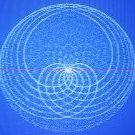Search the Community
Showing results for tags 'wen-tzu'.
Found 1 result
-
From Thomas Cleary's Taoist Classics, p. 228 v. 1: Wen-Tzu 102: Lao-tzu said: When sages set up education and execute policies, they must observe the end and the beginning and see the benefits created. When the people know writing, their virtue deteriorates. When they know calculation, their benevolence deteriorates. When they know contracts, their trust deteriorates. When they know machines, their substantiality deteriorates. A lute does not make any sound, but its twenty-five strings each resound through it; an axle does not turn itself, but the thirty spokes of a wheel revolve by virtue of its power. The strings of a lute must have a balance of relaxation and tautness in order to play a tune. A car needs a balance of work and rest in order to travel far. What enables there to be sound is itself soundless; what makes turning possible does not itself turn. Rulers and ruled are on different paths; what is easy to govern soon loses order. Those whose rank is high and path is great are followed; Petty virtue spoils justice, petty goodness spoils the Way, petty intellectualism spoils government. Cruel strictness harms virtue. Great rectitude is not threatening, so the people are easy to lead. Perfect government is easygoing, so the lower classes do not steal. Perfect loyalty returns to simplicity, so the people have no hypocrisy. I cannot predict the future, yet understand that the decisions I make today affect it. I have read the idea of 'seeing the end and beginning' before, I think in the chuang-tzu. How much of this writing above appears to be actually valid? It echos V. 11 of the Tao-Te-Ching in paragraph two. I haven't read any classics in a while because I still think 'reading between the lines' carries a stronger message.


